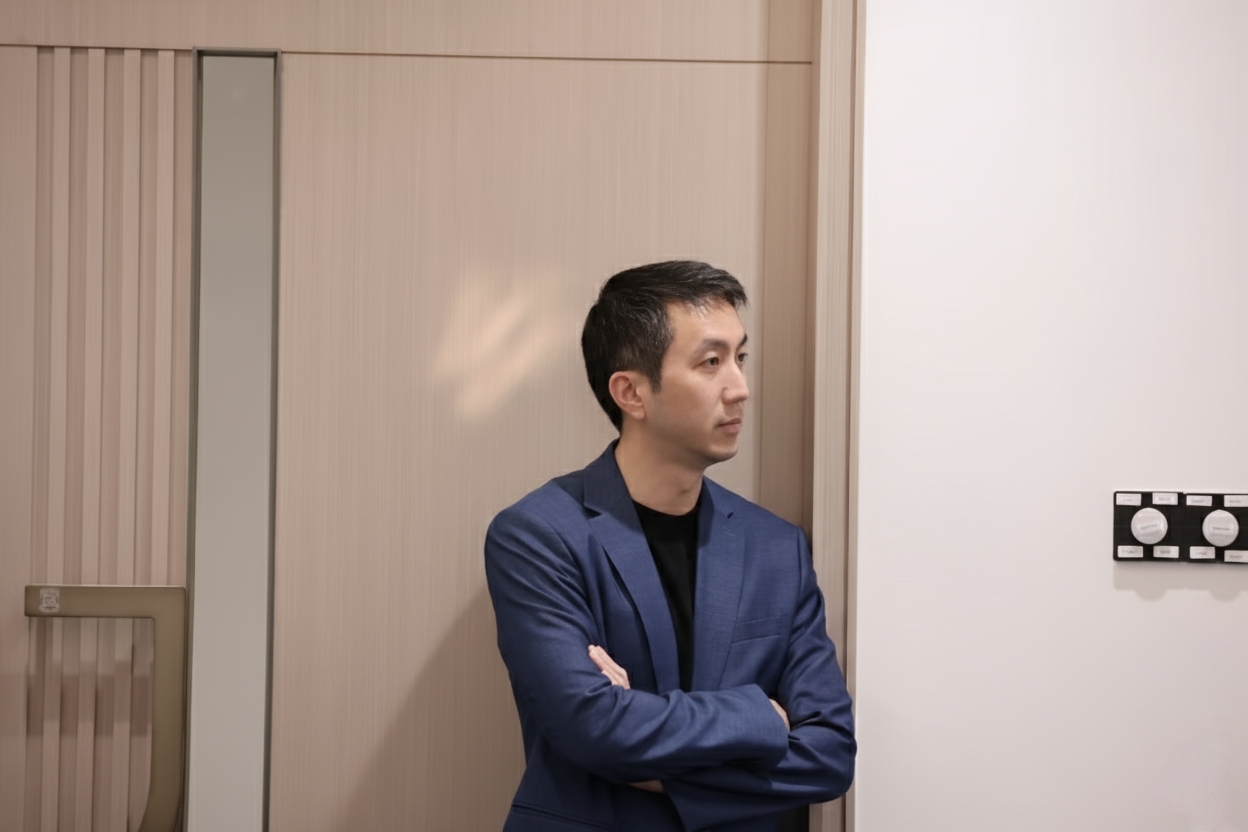
Last update: 31 Jan 2026
Shipeng (pronounced as “Shuh-pung”, in Chinese: 颜示硼) works as an assistant professor of management and strategy at HKU Business School. With a background in organization theory, he specializes in corporate sustainability and institutional analysis.
Lastest News
- 2025: Nominated as Deputy Editor for Management and Organization Review
- 2023: Received Emerging Scholar Award from Org and Natural Environment Division of AOM
- 2023: Nominated as Senior Editor for Management and Organization Review
Education
- PhD in Management (2016), IESE Business School
- Visiting scholar (2016), University of Chicago
- Bachelor in Business Administration (2009), University of Hong Kong
Academic Appointments
- Assistant Professor, University of Hong Kong (2021-present)
- Assistant Professor, City University of Hong Kong (2018-2021)
- Assistant Professor, Tilburg University (2016-2018)
UTD Publications
- Yan Shipeng, Jiang Wei, Xu Yue. 2025 (Forthcoming). “Global investors, hidden suppliers: How institutions shape the impact of stock market liberalization programs on corporate responsibility.”. Journal of International Business Studies
- Cai Yishu, Yue Qingyuan (Lori), Lin Fangwen, Yan Shipeng, Yang Haibin (equal authorship). 2025. “Hedging against the risk of democratic transition: Corporate philanthropy after the Sunflower Movement in Taiwan.”. Administrative Science Quarterly, 70(2): 367-402.
-
Maksimov Vladislav, Wang Stephanie, Yan Shipeng (equal authorship). 2022. “Global connectedness and dynamic green capabilities in MNEs.”. Journal of International Business Studies, 53(4): 723-740.
-
Yan Shipeng, Almandoz Juan (John), Ferraro Fabrizio. 2021. “The impact of logic (in)compatibility: Green investing, state Policy, and corporate environmental performance.”. Administrative Science Quarterly,66(4): 903-944.
- Yan Shipeng. 2020. “A double-edged sword: Diversity within religion and market emergence.”. Organization Science, 31(3): 558-575.
- Yan Shipeng, Ferraro Fabrizio, Almandoz Juan (John). 2019. “The rise of socially responsible investment funds: The paradoxical role of the financial logic.”. Administrative Science Quarterly, 64(2): 466–501
Other Publications
- Fu Jiawei, Yan Shipeng. Forthcoming. “How do new forms of organizations manage institutional voids? Social enterprises’ quest for sociopolitical legitimacy”. Business & Society.
- Fu Jiawei, Yan Shipeng. 2025. “Institutional complexity and social innovation: The case of Chinese social enterprises”. Voluntas, 36(1): 85-97
- Zhang, Ze, Yan Shipeng. 2023. “Air pollution and investors’ behavior: A review of recent literature.” The Routledge Handbook of Green Finance: 542–562. London and New York: Routledge.
- Yan, Shipeng, Ferraro Fabrizio. 2016. “State mediation in market emergence: Socially responsible investing in China”. Research in the Sociology of Organizations, vol. 48B: 173–206. Bingley: Emerald Group Publishing Limited.
- Bose Indranil, Yan Shipeng. 2011. “The green potential of RFID projects: A case-based analysis”. IT Professional, 13(1).
Working papers
Corporate sustainability:
- Corporate reputation
- Religious environmentalism
- Supply chain management
- Carbon leakage
- Environmental innovation
- ESG ratings
- Climate litigation
Corporate non-market strategy
- Rhetorics in market narratives
- Political movement
- Religious logic
- Institutional trust
I am open to collaborations and please don’t hesitate to drop an email at shpyan at hku dot hk if you find an overlapping interest.
For Visiting students & PhD applicants
PhD Admission at HKU Business School
I regularly receive emails soliciting my interest in hiring PhD students, but in my current institution the PhD admission decisions are committee-based. However, if you are already a doctoral student interested in ESG and institutional analysis from a different institution, there might be a visiting opportunity.
My style as a PhD adviser
- My goal is to help you become an independent and productive scholar.
- I am not a micro-manager. I also respcet your boundaries and understand that you have multiple priorities in life. However, if you believe that a healthy dose of structure with reminders and deadlines is helpful for you, please ask for it explicitly.
- In general, I am responsive. In return, I also expect you to be responsive.
- You don’t have to agree with me all the time, but you should provide a well-reasoned explanation. This principle applies to responding to reviewers.
- I am on your side when you need support. That means I am with you even if you decide that research is not your cup of tea or your current priority in life. However, you should take the initiative to communicate your concerns in a timely manner.
My intellectual style
As a management scholar, I care about theoretical novelty, empirical rigor, and practical relevance. A good paper should at least have two or more of the elements.
Why PhD in Management?
-
You will NOT become a CEO of a large multinational firm after doing a PhD in management. On the contrary, doing this will most likely kill your chance to be a CEO. An imperfect but useful analogy is that a management scholar is to a manager as a football game analyst is to a footballer.
-
Management research treats managerial phenomena as if they can be scientifically analyzed and generalized and develop abstract theories to describe complex managerial issues in simple ways. Sometimes certain scholars go too far in developing theories on phenomena that few people care about. Sometimes certain scholars are not careful in developing explanations that are logically coherent and scientifically rigorous. Management research must balance between academic rigor and practical relevance.
-
As a management scholar, you will have the opportunity to help train and educate the next generation of corporate leaders. Future and current managers love to go back to business schools to reflect on their past experiences and learn from your research if it is interesting and relevant.
Soccer/Football
Besides research, I also enjoy playing soccer/football. Here are my latest youtube clips of soccer plays. Each clip is less than 20 seconds on average :)
-
2026: Jan collection
-
2025: top 5 goals
Nov 7-Dec 7, 2025; Nov 1, 2025; Sep 21, 2025; Aug 24, 2025; Aug 18, 2025; Aug 09, 2025; Aug 02, 2025; Jul 24, 2025; Jul 14, 2025;Jul 11, 2025; Jul 6, 2025; May 4, 2025; Apr 13, 2025; Apr 06, 2025; Mar 24, 2025; Feb 23, 2025
- 2024: All goals in 2024
- 2023: My favorite solo goals in 2023